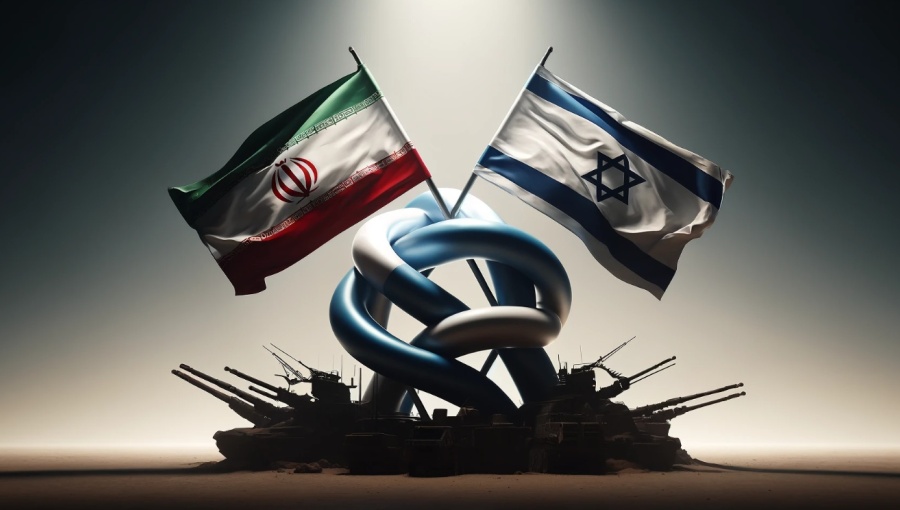The complex geopolitical dynamics of the Middle East often raise questions about military actions and conflicts between key nations in the region. Among these, the relationship between Israel and Iran stands out as particularly tense and historically significant. The question “Did Israel attack Iran?” is steeped in historical context, regional power struggles, and the implications such an event would have on global stability. This post will explore the background, documented incidents, and potential consequences of an Israeli strike on Iran.
1. Historical Context of Israel-Iran Relations
Israel and Iran were once allies during the era of the Shah of Iran, prior to the 1979 Iranian Revolution. However, the rise of the Islamic Republic shifted Iran’s stance, resulting in a significant deterioration of relations. Iran’s new leadership adopted an anti-Israel position, calling for the removal of the Jewish state and openly supporting groups opposed to Israel, such as Hezbollah and Hamas.
Israel, for its part, has maintained a firm stance against the development of a nuclear-capable Iran. This tension has shaped the nature of their interactions, framing them more as adversaries than as cooperative neighbors. The concern over Iran’s nuclear capabilities has been at the center of Israel’s security strategy and its military operations.
2. Documented Incidents and Operations
While there have been various reports and rumors of covert actions between Israel and Iran, it is essential to focus on the events that are documented and verified:
- Cyber Warfare (Stuxnet Virus, 2010): One of the most notable instances of an Israeli attack against Iranian infrastructure involved the Stuxnet virus. This sophisticated cyber-weapon targeted Iran’s nuclear enrichment facilities at Natanz, causing significant disruption to their uranium enrichment program. While neither Israel nor the U.S. officially took responsibility, most experts attribute the attack to both nations, marking a significant step in digital warfare.
- Covert Operations and Assassinations: Over the years, Israel has been suspected of conducting covert operations aimed at slowing down Iran’s nuclear ambitions. These include the assassination of key Iranian nuclear scientists, which many analysts believe to be carried out by Mossad, Israel’s national intelligence agency. These operations are designed to destabilize or delay Iran’s nuclear program without initiating an overt military confrontation.
- Air Strikes on Iranian Positions in Syria: While these incidents did not occur directly on Iranian soil, Israel has carried out numerous air strikes in Syria, targeting Iranian-backed militias and weapons shipments intended for Hezbollah. These preemptive strikes serve as a message of deterrence, signaling Israel’s readiness to act against Iranian influence in the region.
3. Why Would Israel Consider Attacking Iran?
Israel’s primary reason for potentially striking Iran lies in preventing Iran from acquiring nuclear weapons. Israeli leadership, across different administrations, has viewed a nuclear-armed Iran as an existential threat. The government has made it clear that it would not hesitate to take unilateral action if it believed diplomacy and international agreements were failing to curb Iran’s nuclear ambitions.
4. Implications of an Attack
The implications of an Israeli attack on Iran would be far-reaching and potentially devastating:
- Regional Conflict Escalation: A direct military attack by Israel on Iranian facilities could trigger retaliatory strikes by Iran, including missile attacks on Israeli cities. This could escalate into a broader regional conflict, drawing in other Middle Eastern nations and allies on both sides.
- Global Economic Repercussions: The Middle East is a significant source of the world’s energy supply. Any major conflict between Israel and Iran could disrupt oil shipments through the Strait of Hormuz, causing spikes in global oil prices and impacting international markets.
- International Diplomacy and Alliances: An attack would undoubtedly strain relationships between global powers. The U.S., traditionally an ally of Israel, would find itself in a delicate situation as it seeks to balance its support for Israel with its efforts to prevent all-out war in the region. Similarly, other major powers such as Russia and China, which have economic and strategic ties to Iran, would react to protect their interests.
5. Preventive Measures and Diplomatic Efforts
Efforts to avoid military conflict have included international agreements such as the Joint Comprehensive Plan of Action (JCPOA), commonly known as the Iran nuclear deal, negotiated in 2015. The deal aimed to limit Iran’s nuclear capabilities in exchange for the lifting of economic sanctions. However, Israel has been critical of this agreement, arguing that it does not go far enough to prevent Iran from achieving nuclear breakout capability.
6. Current Status and Speculations
As of now, there have been no verified reports of a full-scale Israeli attack on Iran itself. However, both countries continue to engage in shadow warfare involving cyber attacks, espionage, and indirect military confrontations through proxies in Syria and Lebanon.
Speculations about potential future strikes continue to be fueled by geopolitical analyses, intelligence reports, and the rhetoric from leaders on both sides. Israel’s readiness to act and Iran’s persistence in advancing its nuclear program make the situation highly volatile.
Conclusion
While Israel has not conducted a direct, large-scale attack on Iran, its history of covert operations, targeted assassinations, and preventive strikes in neighboring regions demonstrate its proactive approach to neutralizing perceived threats. The possibility of an overt military strike remains a topic of significant concern and speculation, with profound implications for both regional and global stability. Understanding the historical tensions, strategic motivations, and potential outcomes is essential for anyone interested in Middle Eastern geopolitics.
References: For further reading, authoritative sources include reports from the International Atomic Energy Agency (IAEA), U.S. intelligence assessments, and reputable international news outlets like BBC and The Guardian.




